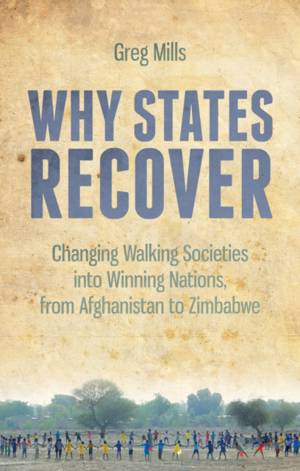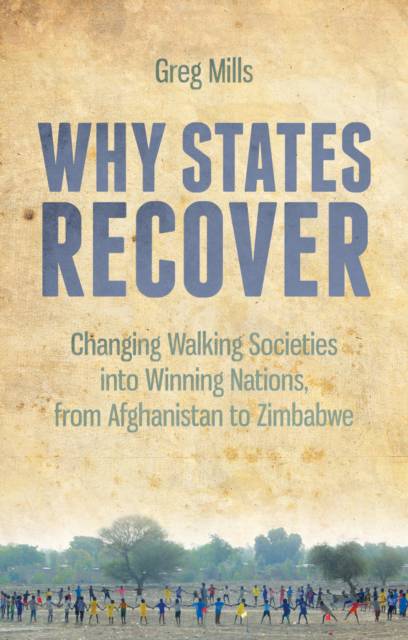
Vous voulez être sûr que vos cadeaux seront sous le sapin de Noël à temps? Nos magasins vous accueillent à bras ouverts. La plupart de nos magasins sont ouverts également les dimanches, vous pouvez vérifier les heures d'ouvertures sur notre site.
- Retrait gratuit dans votre magasin Club
- 7.000.000 titres dans notre catalogue
- Payer en toute sécurité
- Toujours un magasin près de chez vous
Vous voulez être sûr que vos cadeaux seront sous le sapin de Noël à temps? Nos magasins vous accueillent à bras ouverts. La plupart de nos magasins sont ouverts également les dimanches, vous pouvez vérifier les heures d'ouvertures sur notre site.
- Retrait gratuit dans votre magasin Club
- 7.000.0000 titres dans notre catalogue
- Payer en toute sécurité
- Toujours un magasin près de chez vous
Why States Recover
Changing Walking Societies Into Winning Nations, from Afghanistan to Zimbabwe
Greg Mills
Livre broché | Anglais
45,45 €
+ 90 points
Description
State failure takes many forms. Somalia offers one extreme. The country's prolonged civil war led to the collapse of central authority, with state control devolving to warlord-led factions that competed for the spoils of local commerce, political power, and international aid. Malawi, on the other hand, is at the other end of the scale. During President Bingu's second term in office, the country's economy collapsed as a result of poor policies and Bingu's brand of personal politics. On the surface, Malawi's economy seemed largely stable; underneath, however, the polity was fractured and the economy broken. In between these two extremes of state failure are all manner of examples, many of which Mills explores in the fascinating and profoundly personal Why States Recover. Throughout he returns to his key questions: how do countries recover? What roles should both insiders and outsiders play to aid that process? Drawing on research in more than thirty countries, and incorporating interviews with a dozen leaders, Mills examines state failure and identifies instances of recovery in Latin America, Asia, and Africa. For anyone interested in the reasons behind states' failure, and remedies to ensure future economic stability, it is important reading.
Spécifications
Parties prenantes
- Auteur(s) :
- Editeur:
Contenu
- Nombre de pages :
- 700
- Langue:
- Anglais
Caractéristiques
- EAN:
- 9781849044615
- Date de parution :
- 01-03-15
- Format:
- Livre broché
- Format numérique:
- Trade paperback (VS)
- Dimensions :
- 140 mm x 216 mm
- Poids :
- 725 g







